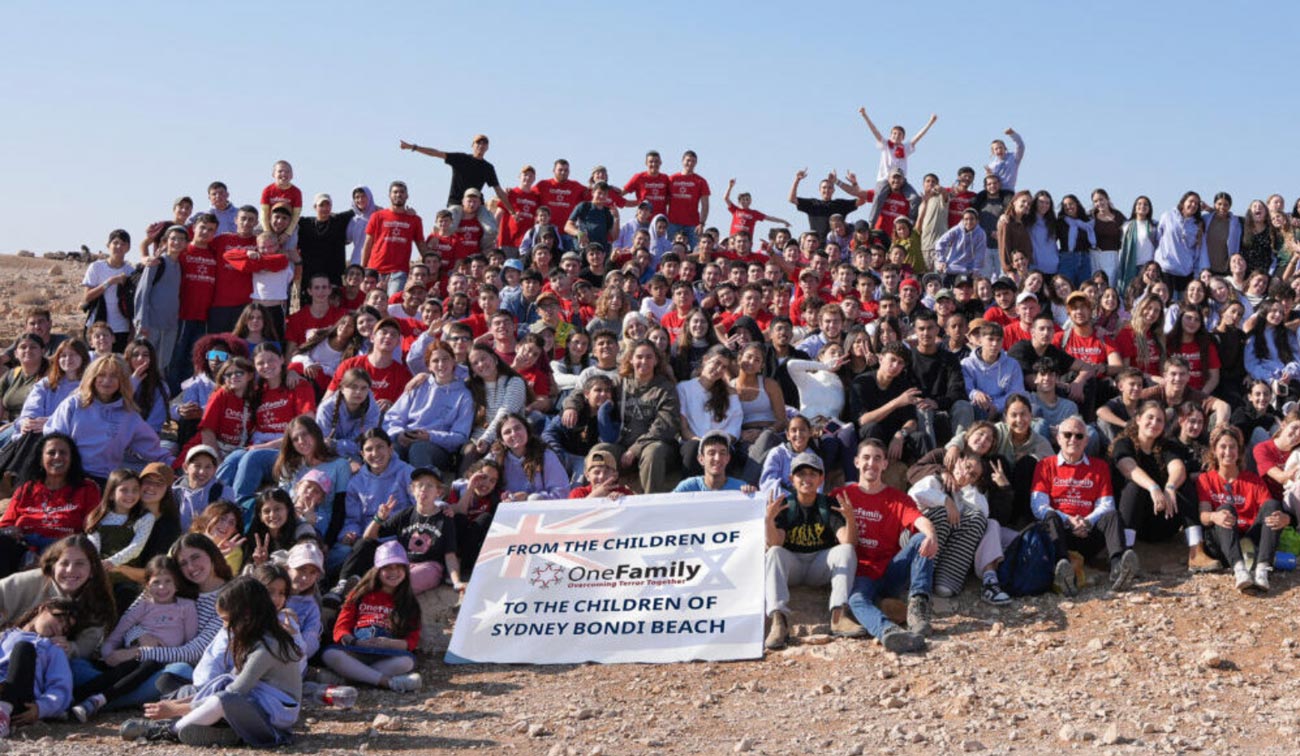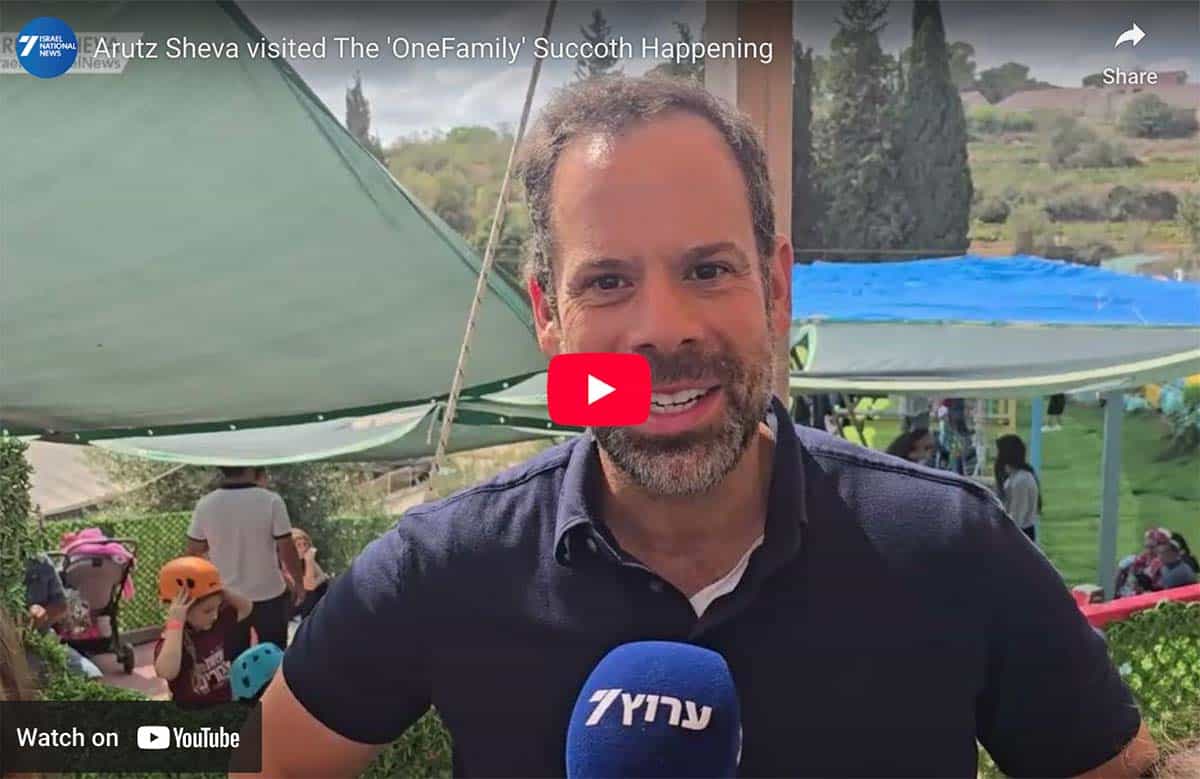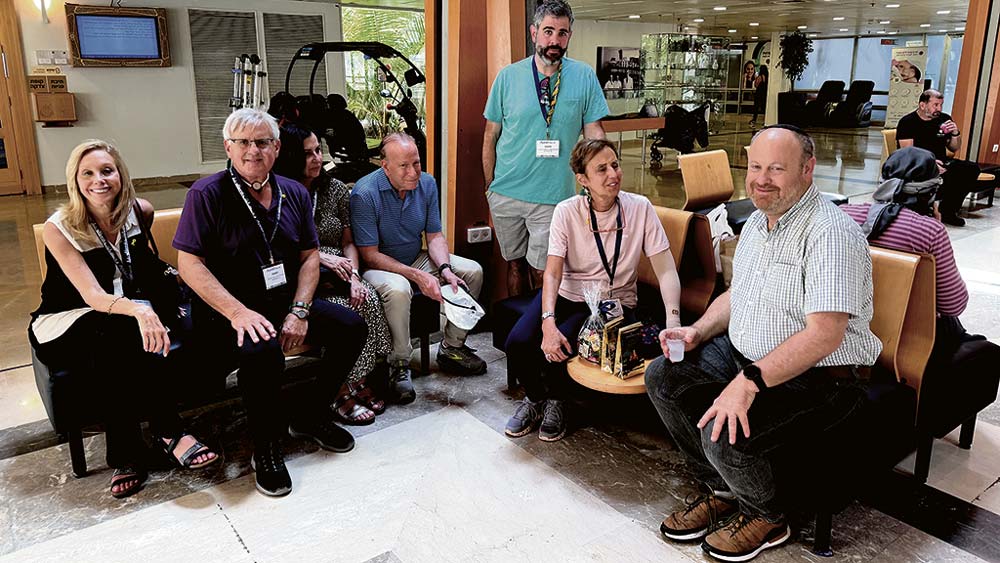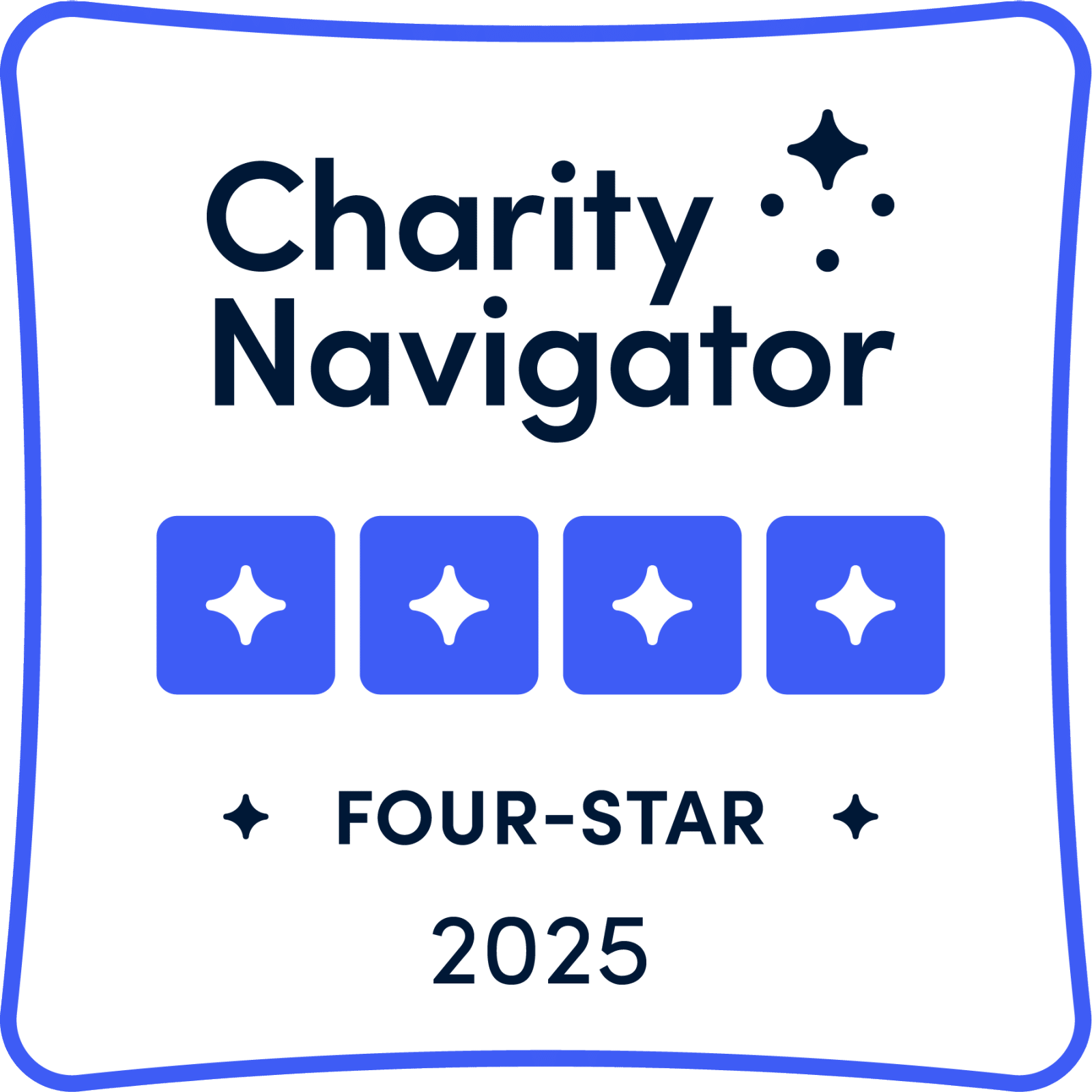table of contents
Published in New Jersey Herald (Original article)
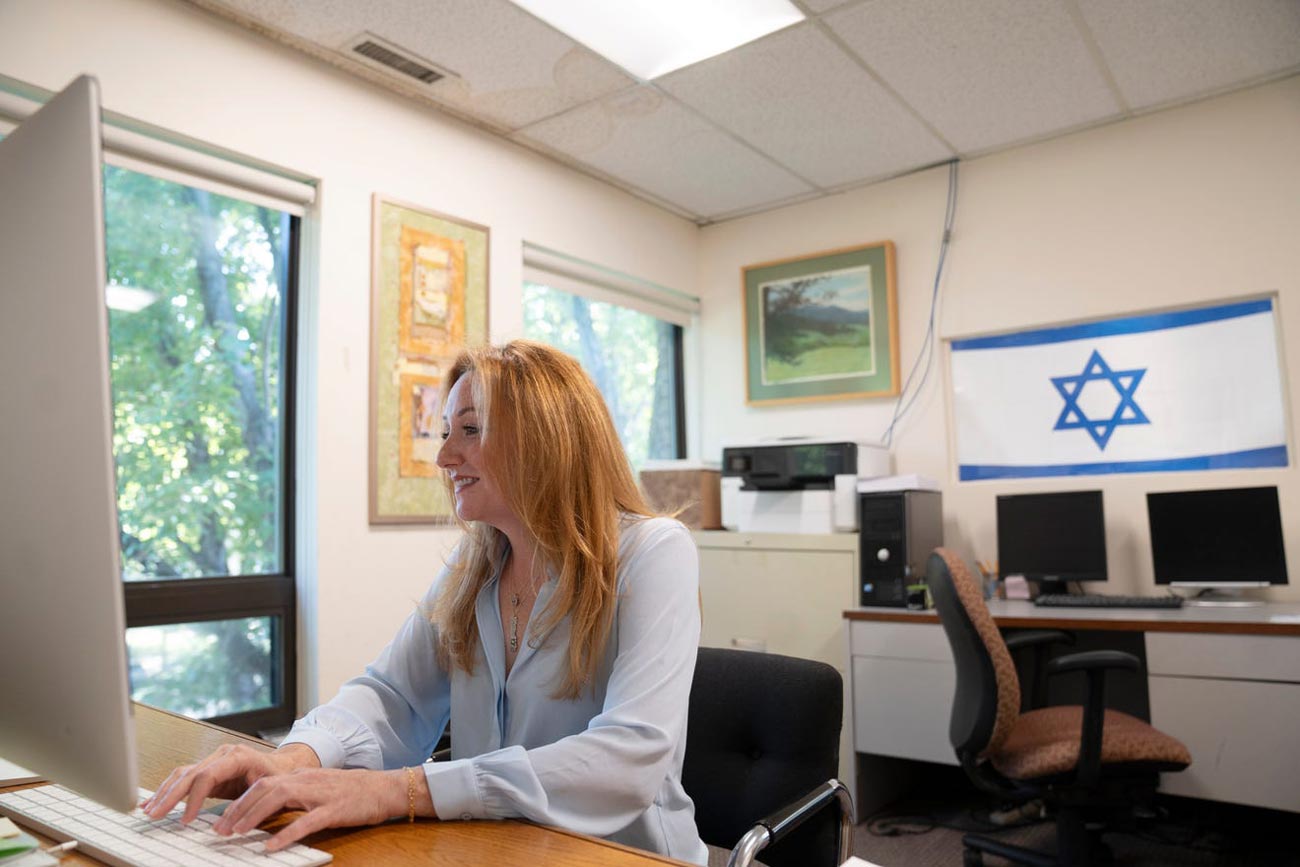
From her Teaneck office, Naomi Nussbaum runs the U.S. office of OneFamily Fund, a nonprofit that aids Israeli victims of war and terror. In the days following Oct. 7, she worked “around the clock,” she said. “That helped me get through.”
Michael Karas-NorthJersey.com
Hadar Zak clenched the phone tightly as his mother tried to reassure him.
Zak's mother, Eti, was hiding in the safe room of their home in southern Israel, along with his father, Itay, and his 14-year-old brother, Sagi. "We are OK," his mother repeated, over and over.
Zak was unconvinced. He could hear the rapid gunfire in the background.
On Oct. 7 of last year, Hamas terrorists breached Israel's borders and attacked communities like the kibbutz where the Zaks lived, a quarter mile from Gaza. Hadar, who was traveling, had heard about a terrorist assault. He tried to tame the panic rising in his chest.
Nobody was safe. Even in the most fortified safe room.
He could have been home that day with his family on Kibbutz Kissufim, a farming community of nearly 300 people with citrus groves and an avocado orchard. Instead, the 24-year-old was vacationing with friends in Eilat, a resort town several hours away.
"Stay there," the son remembers telling his mother. "I'm going to get you help and I'll call you right back."
But that was their final conversation. A half hour later, the line was dead.
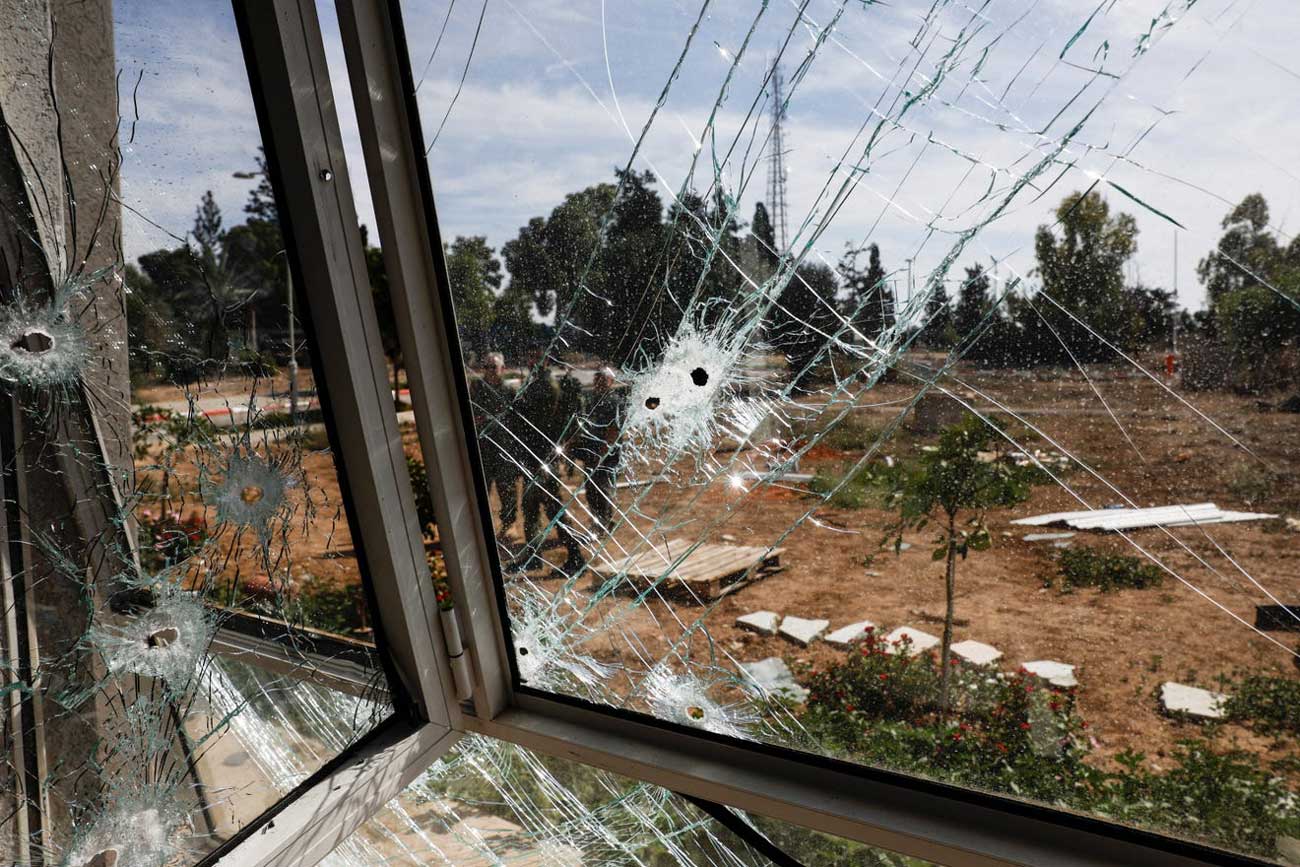
A view from a bullet-riddled window of a home in Kibbutz Kissufim, taken on Oct. 21, 2023. Hamas gunmen killed almost two dozen people in the village on Oct. 7, including Hadar Zak’s family. AMIR COHEN, REUTERS
Ripples of October 7 reach an NJ home
Almost 6,000 miles away in Teaneck, Naomi Nussbaum heard about the massacre and burst into tears. With more than 1,200 casualties ― many victims were brutally killed, shot, burned alive in their houses or raped ― and 250 more taken hostage, the attack amounted to the deadliest day for the global Jewish community since the Holocaust.
“It was hard to move,” said Nussbaum, a mother of three. “I felt overwhelmed.”
But she also felt a sense of mission. As the American director for OneFamily, an Israeli nonprofit that has worked with terror victims for more than 20 years, Nussbaum knew the gulf that survivors like Zak would have to cross. She had work to do.
In the days following Oct. 7, Nussbaum worked in OneFamily’s Teaneck office “around the clock. I didn’t stop,” she recalled. “That helped me get through that time. I felt lucky to be in a position to help because being unable to help can be traumatic.”
So many people were suffering. The grief wasn’t limited to the families of those killed or captured. Hamas also left 5,000 people severely injured. By some accounts, as many as 22,000 Israelis took part in the Jewish ritual of “sitting shiva” — mourning a loved one after the rampage.
“An entire nation was traumatized and needs healing to become more functional,” said Nussbaum, 48, who lives in Englewood. “One death or injury represents many more people who need help.”
Within hours of the attack, OneFamily created a 24-hour call center in Israel, staffed by a team of volunteers to respond to emergency calls and questions from those who needed help. It was just one of many ways that the organization provided aid amid the crisis.
The attack in Kissufim: Families lost, homes burned
At Kissufim, Hamas attackers kidnapped a neighbor of Zak’s, an elderly man named Shlomo Mansour, 85, who was one of the kibbutz’s founders. There has been no news of his condition since. They also killed six Thai farm workers and an estimated 16 residents and soldiers. Attackers set homes ablaze, leaving the bucolic setting a burnt-out shell.
“Women on my kibbutz told me that they [Hamas] shot my family and lit our home on fire,” Zak said. His parents and brother were still inside, and media reports said they died of asphyxiation. Their bodies were so badly charred, they couldn’t be identified, an issue that many other Oct. 7 victims encountered.
Hadar Zak lost his parents, teenage brother and home in the Oct. 7 attack on his kibbutz. “I’m just trying with all of my strength to carry on,” he said at their funeral.
“I had to provide DNA samples to the police because that’s the only way they could identify them,” Zak said. The burials had to be delayed until the bodies were properly identified.
Itay, 53, was found guarding the door, next to the family dog, Saka. Eti, 50, had her arms around Sagi.
“They were my whole world,” he said. “There was 10 years between me and my little brother, but we had a very special connection. We did everything together.”
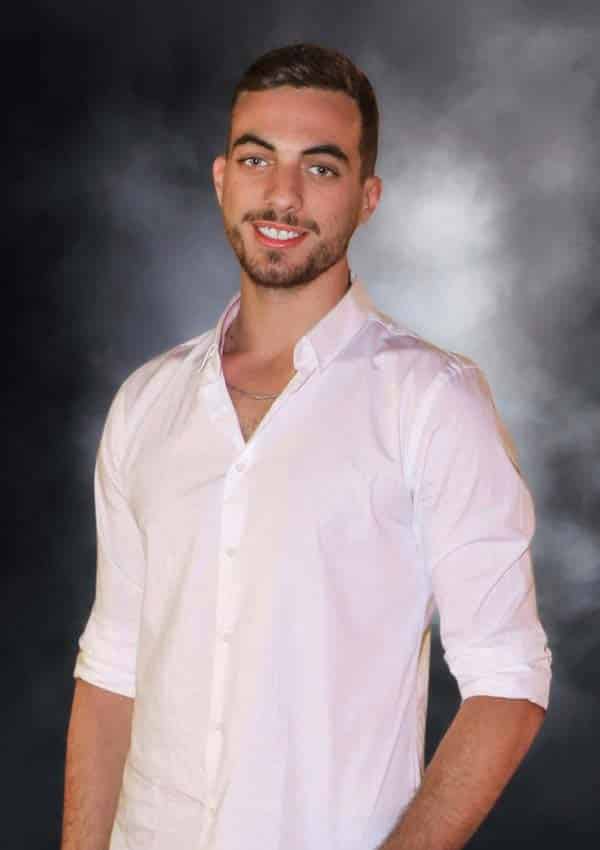
Hadar Zak lost his parents, teenage brother and home in the Oct. 7 attack on his kibbutz. “I’m just trying with all of my strength to carry on,” he said at their funeral. Provided By OneFamily
For survivors, figuring out 'how I can keep living'
Now, only Zak and his younger sister, 23-year-old Tomer, remain. She was also away, waitressing at a hotel on Oct. 7.
His mother, a Moroccan-born teacher, was known for her delicious cooking. His father worked in the kibbutz's avocado farm and made everyone laugh. Sagi loved dancing and swimming and was friendly with everyone, according to a description Tomer wrote on her Facebook page. "We had a wonderful childhood in a quiet and peaceful kibbutz with good people," she wrote. "The sense of security was saturated in us."
Hadar yearned to return to his home to retrieve some of his belongings, but everything had been destroyed in the fire. Suddenly, he was an orphan, without a home. It was difficult to process, difficult to focus. He couldn't sleep for days.
"October 7 changed everything about my existence," he said.
In his eulogy, according to The Times of Israel, Zak said that in his worst nightmares he never imagined he would be orphaned so young. "Dad, you were the greatest object of admiration I have had in my life. You taught me so much and it still doesn't feel like enough. Mom, you were always so proud that I was your spitting image, and today I'm just trying with all of my strength to carry on and figure out how I can keep living.
"But without you all, I am lost."
OneFamily Fund: survivors helping survivors
After the funerals, he was contacted by Ella Danon, a psychotherapist with OneFamily. She invited Zak to support sessions, urged him to join a healing retreat for others who had been orphaned on Oct. 7.
Zak was hesitant at first, he said, too wrapped up in his grief to want to do anything else. The healing retreat was also a free ski trip to Andorra, funded by OneFamily’s donors. Finally, Zak agreed to go.
OneFamily has aided victims of war or terrorist attacks in Israel for the past 23 years. The organization offers an array of services, including retreats, summer camps, therapy and support groups to people of all backgrounds.
As the group’s executive director in the U.S., Nussbaum helps raise and direct funds to victims and the bereaved. “It will never be the way it was before the terror attack, but they can learn tools for supporting their grief and learn to experience joy again,” she said.
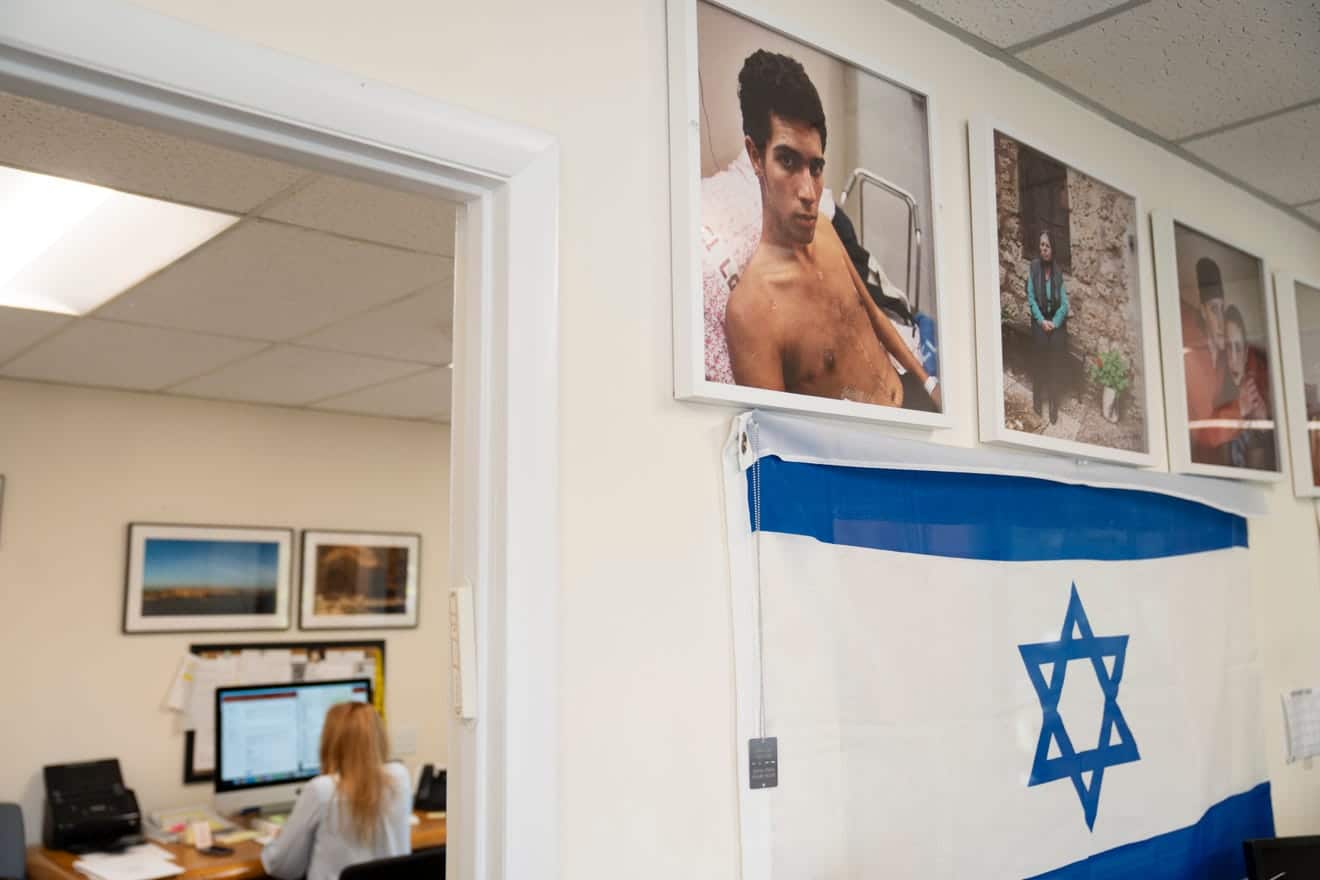
Naomi Nussbaum of Englewood, at the OneFamily Fund office in New Jersey. Photos of people helped by the group hang on a wall. Michael Karas-NorthJersey.com
Nussbaum worked in special education for two decades until a friend introduced her to the OneFamily Fund and she fell in love with its mission. She joined the organization in 2019 and describes her job as "simultaneously heartbreaking and heartwarming."
"This is a way of healing the world," she said.
Many of the group's volunteers were victims themselves who now want to give back by helping others who experience trauma. Some survivors suffer from PTSD or can barely get out of bed.
"Working with the organization has taught me that every individual heals from trauma differently and needs a different path for healing. That's what we provide ― whatever each person needs for life," she said.
"Our OneFamily volunteers are like first responders that never leave."
OneFamily was founded by Chantal and Marc Belzberg, who emigrated from Riverdale in the Bronx to Israel. The couple were inspired by their daughter, Michal, who opted to cancel her bat mitzvah party after the 2001 bombing of a Sbarro pizza store in Jerusalem that killed 16 people and injured 130 more. The Belzbergs' daughter chose to donate the funds from her party to aid the victims of the attack.
"When they went to the hospital to help the victims with whatever they needed, they saw that the money they had raised wasn't nearly enough for everything that was needed. Then they heard a bus was blown up in another terrorist attack," said Nussbaum. "They said `It can't be that nobody is looking after all these people.'" The family "realized this was their calling and started the nonprofit."
OneFamily has since grown into a support network of 65 employees and 550 volunteers. The group has spent $80 million on programs serving over 18,000 people throughout Israel in the years since it was established. Since Oct. 7, its services are in greater demand as the organization attempts to aid the growing number of bereaved from the massacre and the Israel-Gaza war, said Nussbaum.
"Our budget has been roughly $3.5 million each year, and now we need at least $10 million."
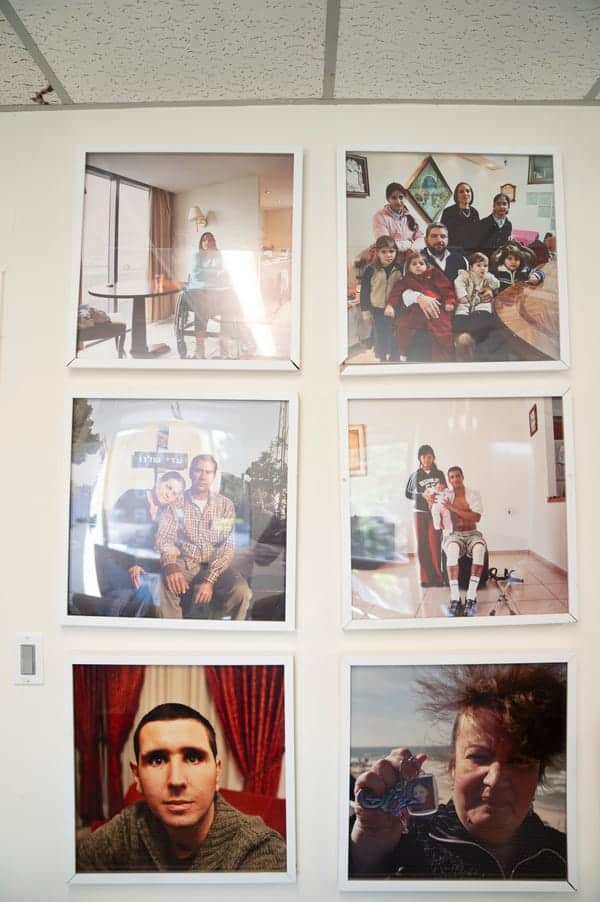
OneFamily has helped 18,000 people throughout Israel since it was founded 23 years ago. The demand for its services swelled after Oct. 7. Nussbaum says the group needs to triple its budget. Michael Karas-NorthJersey.com
At a ski resort, falling and healing
For the newly bereaved like Zak, it has made all the difference.
When Zak arrived at the ski retreat, he met others like him ― young people who had lost parents. They formed a tight family of survivors who understood each other. "We were five orphans from Oct. 7 and five orphans from a previous terror attack," he said. "We socialized but also supported each other. Every night we had a talking session… It gave me strength.
"I no longer felt alone," he said. "Someone was listening."
During the day, he learned new skills on the slopes. He had never skied before, but eventually he moved to the more advanced group.
More:After hostage deaths, NJ dad has a message for son held by Hamas: 'Stay strong. Survive'
"When I fell, I got up and felt stronger," he said. "It seems like skiing is a metaphor for my life now."
His story, like that of many touched by Oct. 7, is not one that will have a neat or quick resolution. Zak faces a long and uneven road ahead. He had planned for a career in computer engineering and envisioned remaining on Kibbutz Kissufim.
Imagining the future is impossible now.
Like many other residents of southern Israel, Zak has been displaced. Initially, he was evacuated to the Dead Sea area. Now, he lives in temporary housing near Be'er-Sheva, in Israel's south.
He and his sister returned to Kissufim several months after the attack to see what was left of their home. Much of the village where they were raised remains in ruins, a shadow of what it used to be. Many talk of returning, but nobody is certain of a time frame.
Zak is trying to find a way to adjust to his new reality, seeking out the tiniest moments of happiness.
"I listen to music. I spend time with my girlfriend," he said.
How he’ll face the anniversary
He also spends time looking at photographs of his family, the smiles from happier times.
Each milestone on the calendar is painful, a reminder of all that was lost. Two weeks ago, he realized it was his father’s birthday.
“He would have turned 54. That was a very rough day for me,” Zak said. “We used to talk all the time.”
On the anniversary, “I will probably go to their graves and light a candle,” he said. “It will be a traumatic day for the rest of Jewish history.”
In the meantime, he uses every ounce of his strength to pull himself from bed each day, knowing that is what his parents would want him to do.
“I want to continue their legacy,” he said. “Every son wants to make their parents proud.”
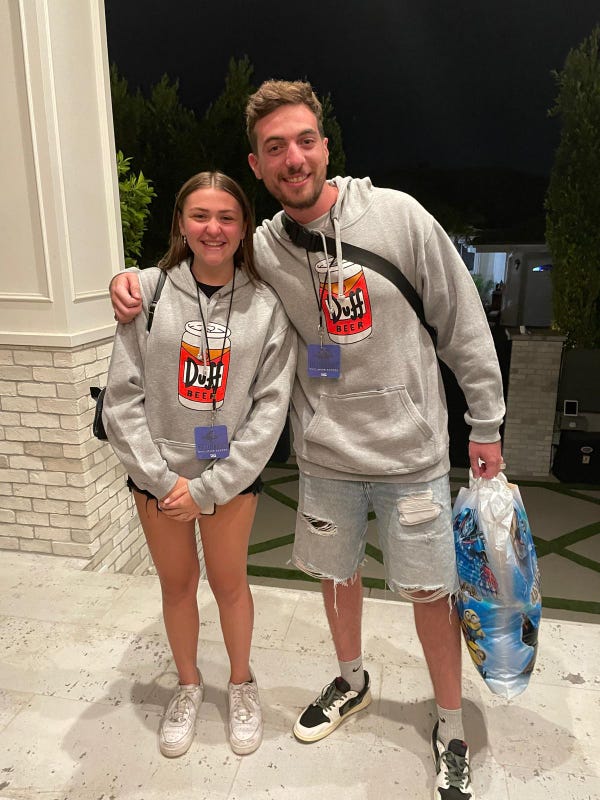
Hadar Zak, right, with Ella Nussbaum, during a recent visit to California. Zak has tried to put his life back on track since his family was murdered in Hamas’ Oct. 7 attack. Ella is the daughter of Naomi Nussbaum, U.S. director of OneFamily, which supports families of terror victims. Provided By Naomi Nussbaum

